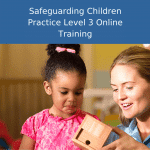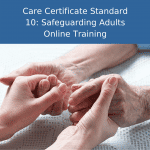Description
County Lines and Knife Crime Training Course
It is crucial for all school staff to be aware of child exploitation, drug trafficking, and indicators of serious violent crime, including county lines. Our County Lines & Knife Crime training equips you to recognize and support vulnerable children and young people at risk of exploitation.
Our online County Lines and Knife Crime training course provides comprehensive knowledge on county lines gangs, victim targeting, the connection between knife crime and trafficking, related crimes, victim support, and reporting concerns.
- Developed by professionals
- Accredited by The CPD Accreditation Group
- 100% online, learn at your own time and pace
- Translates into over 100 different languages
- Instant certificate downloaded
Course Outline: County Lines and Knife Crime
Our County Lines and Knife Crime course aims to significantly enhance your confidence and knowledge in child safeguarding, specifically focusing on the critical areas of County Lines and Knife Crime.
The key points covered in this course are:
- County lines gang
- Structures
- Terminology
- Victims
- Knife crime and trafficking
- Other crimes
- Trauma
- Support a victim
- Your responsibility
- Reporting concerns
County Lines Gang:
- Understand the structure and operations of county lines gangs involved in drug trafficking and exploitation.
Terminology:
- Familiarize yourself with the specific language and terms used within the context of county lines and knife crime.
Victims:
- Recognize the signs and indicators that individuals, particularly children, may be at risk or involved in county lines and knife crime activities.
Knife Crime and Trafficking:
- Explore the connection between knife crime and the illicit drug trade associated with county lines gangs.
Other Crimes:
- Gain awareness of additional criminal activities often linked to county lines, such as violence, exploitation, and modern slavery.
Trauma:
- Develop an understanding of the emotional and psychological impact that county lines and knife crime can have on victims.
Support a Victim:
- Learn effective strategies and approaches to provide support and assistance to victims of county lines and knife crime.
Your Responsibility:
- Acknowledge and embrace your role and responsibility in safeguarding individuals, particularly children, from county lines and knife crime.
Reporting Concerns:
- Understand the importance of reporting any concerns related to county lines and knife crime promptly and following proper reporting procedures.
Learning Outcome:
Upon completion of this County Lines and Knife Crime course, learners will:
- Gain knowledge of county lines gangs’ structure, activities, and terminology.
- Recognize indicators that individuals, especially children, may be at risk or involved in county lines and knife crime.
- Understand the connection between knife crime and county lines trafficking.
- Identify additional crimes associated with county lines, such as violence and exploitation.
- Develop awareness of the emotional impact and trauma experienced by victims.
- Learn strategies to support victims of county lines and knife crime.
- Embrace the responsibility of safeguarding individuals, particularly children, from these crimes.
- Understand the importance of reporting concerns and follow appropriate procedures.
Frequently Asked Question
What is County Lines?
County lines refers to a form of criminal activity in which drug gangs from urban areas expand their operations into smaller towns and rural areas, often using dedicated phone lines to facilitate drug dealing.
These gangs typically exploit vulnerable individuals, including children and young people, to transport and sell drugs in these areas.
County lines operations can involve coercion, violence, and exploitation, and pose significant risks to the individuals involved and the communities affected.
What is county lines in safeguarding?
In the context of safeguarding, county lines refers to a form of exploitation where criminal gangs from urban areas expand their drug-dealing operations into smaller towns and rural areas.
It involves the grooming and exploitation of vulnerable individuals, including children and young people, to transport and sell drugs.
Safeguarding measures aim to identify and protect individuals at risk of involvement in county lines activities, and provide support and intervention to those affected.
Is threatening someone illegal?
Yes, threatening someone is generally considered illegal. It can be a criminal offense, depending on the jurisdiction and the nature of the threat.
Threats can lead to charges such as assault, harassment, or making criminal threats, and can carry legal consequences. It is important to respect the rights and well-being of others and to seek peaceful and legal resolutions to conflicts.
What types of abuse are connected with county lines?
Types of abuse connected with county lines operations include:
- Physical Abuse: Gang members may use violence or threats to control individuals involved in the operation.
- Emotional and Psychological Abuse: Gangs manipulate and intimidate vulnerable individuals to control them.
- Sexual Exploitation: Some individuals are forced into unwanted sexual activities in exchange for drugs or as a means of control.
- Financial Exploitation: Gangs may control individuals’ money or use their homes for drug operations.
- Neglect: Exploited individuals may be neglected, with their basic needs and well-being ignored.
- Drug Dependency: Those involved in county lines can become dependent on drugs due to their involvement.
These abuses have serious effects on individuals and require support and intervention to address the harm caused.






